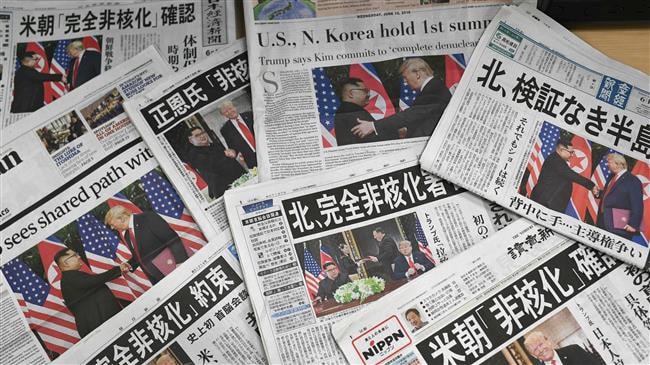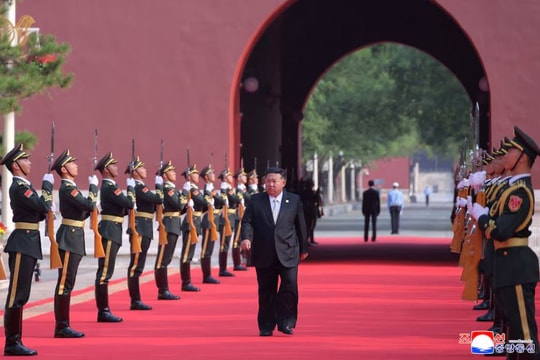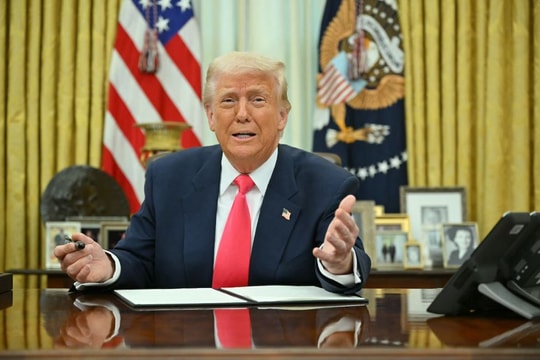Japan offers to pay initial costs for North Korea's denuclearization
(Baonghean.vn) - Japan has offered to pay the initial costs of North Korea's possible denuclearization, as high-level diplomacy between the US and the two Koreas often pushes Tokyo to the sidelines.
 |
| Front pages of many Japanese newspapers reported on the US-North Korea summit on June 12 in Singapore. Photo: AFP |
Japanese Chief Cabinet Secretary Yoshihide Suga made the proposal in a statement on June 13, one day after US President Donald Trump and North Korean leader Kim Jong-un met at a summit in Singapore.
At the end of the June 12 summit, Trump and Kim signed a brief, generally worded document in which the two sides pledged to work “toward the complete denuclearization of the Korean Peninsula.”
While President Trump asserted that denuclearization will begin in North Korea “immediately,” no specific information has been given about the disarmament process, including the time it will take and the mechanisms that will be used.
The International Atomic Energy Agency (IAEA) has offered to help denuclearize North Korea, and Mr. Suga said Japan would pay for IAEA inspections if they actually took place.
When asked who would pay for denuclearization at a post-summit press conference, Trump also replied that he thought both Japan and South Korea would “help a lot.”
The agreement Kim and Trump signed on June 12 did not provide specific details. North Korea’s state news agency KCNA reported that the US had offered “security guarantees” to Pyongyang, but the signed document did not mention such concessions.
Amid the flurry of diplomacy that culminated in the Singapore summit, Japan has often had to press its position. Prime Minister Shinzo Abe has held several talks with President Trump, stressing Tokyo’s concerns, including the need for continued US military presence in the region.
Japan has relied heavily on US military protection since World War II, and Abe has said at one point that any deal with North Korea must see the removal of ballistic missiles of all ranges.
Trump, who has called the meeting with Kim a success, has said he will end war games with South Korea and bring US troops home from the region.
The annual exercises are a major source of tension but are also seen by Seoul and Tokyo as a bulwark against what they see as North Korean aggression.
In March, just days after Trump announced his decision to meet Kim, Japan pledged more than $2.8 million to fund IAEA inspections of North Korean nuclear facilities if Pyongyang agreed to them.
IAEA inspectors who had previously monitored North Korea's nuclear facilities were expelled in April 2009, after the then-six-party talks on North Korea's denuclearization collapsed.
Japan wants the US to continue military exercises
Underscoring Tokyo's concerns, Japanese Defense Minister Itsunori Onodera said on June 13 that the US military presence in South Korea and joint exercises were "vital" and must continue.
“The exercises and the US military presence in South Korea play a vital role in East Asian security,” Onodera said. “We want to seek understanding on this issue between Japan, the US and South Korea.”
In remarks on June 12, Trump called the annual exercises both costly for the US and “provocative” for North Korea. But he did not announce a final decision on the issue.
“We have 32,000 troops in South Korea, and I would like to be able to bring them home,” Trump said. “But that’s not part of the program right now. I hope that will eventually happen.”
US military forces have been stationed in South Korea since the Korean War armistice in 1953.



